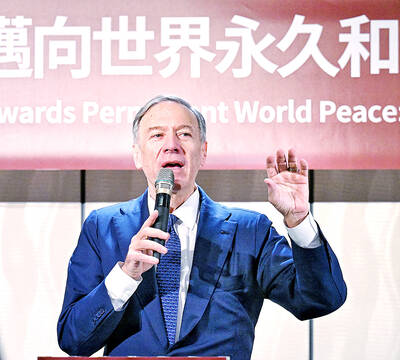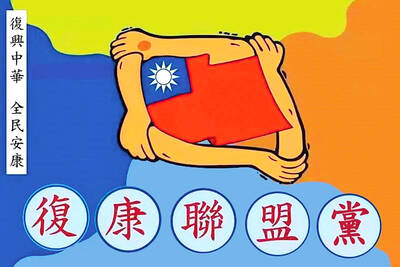China has launched an anti-monopoly investigation into US software giant Microsoft, and lawsuits by local companies could follow, state media reported yesterday.
China’s State Intellectual Property Office and some research institutions have targeted Microsoft and several other global software firms over suspected monopoly activities, the Shanghai Securities News said.
Firms will be organized to file lawsuits against the software giants after China’s debut anti-monopoly law comes into effect on Aug. 1, unnamed sources told the newspaper.
The probe by Chinese regulators focuses on operating systems and other software developed by international companies that cost much more in China than in the US, one source was quoted as saying.
“On one hand, global software firms, taking advantage of their monopoly position, set unreasonably high prices for genuine software, while on the other hand they criticize Chinese for poor copyright awareness. This is abnormal,” the source said. “With the anti-monopoly law in place, Chinese government and companies have the obligation and right to correct the situation.”
One set of the Windows operating system plus Microsoft Office software can cost up to 7,000 yuan (US$1,015) in China, making it more expensive than a personal computer, the source said.
A spokesman with Beijing-based Microsoft China was not immediately available for comment when reporters contacted the firm.
The State Intellectual Property Office could also not immediately be reached for comment.
China’s parliament passed the country’s first anti-monopoly law last year, sparking concern among US and European business groups.
The law requires that proposed mergers or takeovers of Chinese firms by foreign companies must be checked to ensure that they do not endanger national security or lead to monopolies.

ANNOUNCEMENT: People who do not comply with the ban after a spoken warning would be reported to the police, the airport company said on Friday Taoyuan International Airport Corp on Friday announced that riding on vehicles, including scooter-suitcases (also known as “scootcases”), bicycles, scooters and skateboards, is prohibited in the airport’s terminals. Those using such vehicles should manually pull them or place them on luggage trolleys, the company said in a Facebook post. The ban intends to maintain order and protect travelers’ safety, as the airport often sees large crowds of people, it said, adding that it has stepped up publicity for the regulation, and those who do not comply after a spoken warning would be reported to the police. The company yesterday said that

QUIET START: Nearly a week after applications opened, agencies did not announce or promote the program, nor did they explain how it differed from other visitor visas Taiwan has launched a six-month “digital nomad visitor visa” program for foreign nationals from its list of visa-exempt countries who meet financial eligibility criteria and provide proof of work contracts. To apply, foreign nationals must either provide proof that they have obtained a digital nomad visa issued by another country or demonstrate earnings based on age brackets, the Bureau of Consular Affairs said. Applicants aged 20 to 29 must show they earned an annual salary of at least US$20,000 or its equivalent in one of the past two years, while those aged 30 or older must provide proof they earned US$40,000 in

UNITY MESSAGE: Rather than focusing on what Trump said on the campaign trail about Taiwan, Taipei should be willing to engage with the US, Pompeo said Taiwan plays a key role in Washington’s model of deterrence against China, former US secretary of state Mike Pompeo said in a speech in Taipei yesterday. During US president-elect Donald Trump’s first term, “we had developed what we believe was a pretty effective model of deterrence against adversaries who wanted to undermine the set of rules and values that the people of Taiwan and the people of the US hold dear,” Pompeo said at a forum organized by the Formosa Republican Association. “Succeeding in continuing to build this model will not solely rest at the feet of president Trump and his team,

SERIOUS ALLEGATIONS: The suspects formed spy networks and paramilitary groups to kill government officials during a possible Chinese invasion, prosecutors said Prosecutors have indicted seven retired military officers, members of the Rehabilitation Alliance Party, for allegedly obtaining funds from China, and forming paramilitary groups and assassination squads in Taiwan to collaborate with Chinese troops in a possible war. The suspects contravened the National Security Act (國家安全法) by taking photos and drawing maps of key radar stations, missile installations and the American Institute in Taiwan’s headquarters in Taipei, prosecutors said. They allegedly prepared to collaborate with China during a possible invasion of Taiwan, prosecutors said. Retired military officer Chu Hung-i (屈宏義), 62, a Republic of China Army Academy graduate, went to China